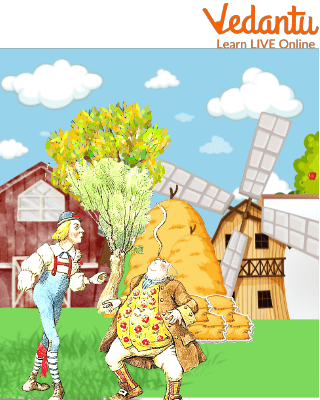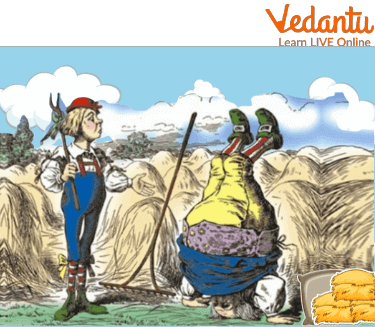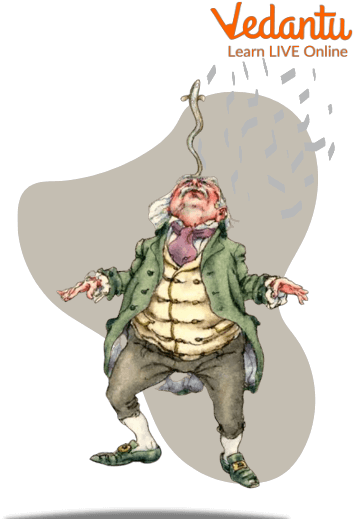Overview of You are Old, Father William Poem
Weather, food, and poems are what make our mood great. We learn a lot from such unique works from various poets. In the same way, “You are Old; Father William” poem is a highly humorous and nonsense poem ever written by Lewis Carroll. Interestingly, this poem was first published in 1865 in Carroll’s “Alice Adventures in Wonderland” book.
This humorous poem is a parody of a famous children’s poem, “The Old Man’s Comfort and How He Gained Them”. Many believe this version is quite better than the actual poem.
Further, in this article, we will talk of the You are Old, Father William stanza explanation and figure of speech in the You are Old, Father William poem.
You are Old, Father William Poem Lyrics
“You are old, Father William,” the young man said,
“And your hair has become very white;
And yet you incessantly stand on your head—
Do you think, at your age, it is right?”
“In my youth,” Father William replied to his son,
“I feared it might injure the brain;
But now that I’m perfectly sure I have none,
Why, I do it again and again.”
“You are old,” said the youth, “as I mentioned before,
And have grown most uncommonly fat;
Yet you turned a back-somersault in at the door—
Pray, what is the reason of that?”
“In my youth,” said the sage, as he shook his grey locks,
“I kept all my limbs very supple
By the use of this ointment—one shilling the box—
Allow me to sell you a couple.”
“You are old,” said the youth, “and your jaws are too weak
For anything tougher than suet;
Yet you finished the goose, with the bones and the beak—
Pray, how did you manage to do it?”
“In my youth,” said his father, “I took to the law,
And argued each case with my wife;
And the muscular strength, which it gave to my jaw,
Has lasted the rest of my life.”
“You are old,” said the youth, “one would hardly suppose
That your eye was as steady as ever;
Yet you balanced an eel on the end of your nose—
What made you so awfully clever?”
“I have answered three questions, and that is enough,”
Said his father; “don’t give yourself airs!
Do you think I can listen all day to such stuff?
Be off, or I’ll kick you down stairs!”
You are Old, Father William Stanza Explanation

Young Boy and His Father
The first lines of the poem are seen as a young man addressing someone as “Father William”. The young man describes the father as “hair has become very white”. In the second stanza, we are clear that the young man is Father William’s son. Father now replies to his son that he was terrified to perform stunts during his young days. Father used to think that it could injure his brain. Even after proving the son calls him “old”.

Old Father Standing on his Head
The young boy points out that his Father has gained weight. But, despite his age and weight, Father William somersaults at the door. Now, the Father is answering by remembering his young age. Father William during his young age managed to keep his body very flexible. He rubbed ointment on his body as it was very cheap at just one shilling per box.
Again the young boy is talking about his Father’s old age by saying that his teeth have become weak. They are currently not strong enough to chew flesh, beef, or mutton. But, we can see that Father William finished a whole goose with its bones and beak.
Again Father William is replying to his young son. Father remembers that he used to argue with his wife. He even had a legal case to come across with his wife. Thus, his jaws exercised while arguing and arguments became strong. In fact, this exercise of his lasted for the rest of his life.
Once again the young boy calls his Father old by saying that his vision is not strong. But, we can see Father William is able to balance an eel fish on the tip of his nose. This proves that Father still has a strong vision.

Father Balancing an eel Fish on the Tip of his Nose
In the last stanza, we see Father is now tired of answering any more questions asked of him. He has already answered three questions and is now quite irritated. Now, Father criticises his son by saying, “giving himself airs”, which means self-important. He warns his son to leave the place immediately or else he will kick him down the stairs.
The Theme of You are Old, Father William
You are Old Father William summary tells us that age is just a number. The theme of this poem is the generation gap between an experienced person and an arrogant son. We can see that this poem is very much concerned about age. If we keep our life balanced, then age will surely not matter. The figure of speech in You are Old, Father William is ABAB.
Summary
Throughout the poem, we can literally see that age is just a number. In the end, what matters is experience. Experience comes over age so it was definite that the young boy would lose in front of his old father. Other than these, we can see that the poet is showcasing that the young generation does not understand the elders. There is a huge understanding gap between his Father and him. No matter what, our parents always give the right decision and choice for their young ones.


FAQs on You are Old, Father William
1. Where was “You are Old, Father William” first recited?
This poem from Lewis Carroll was first recited in Carroll’s book named “Adventures in Wonderland” under chapter five.
2. Why is the Old Father called “sage” in this poem?
The Father was called “sage” because it was that phase of life where he inherited the connection to his unlimited potential in his life.
3. What annoyed Father William when he was young?
The only thing that annoyed Father William during his youth was he was afraid to do dangerous things. We could say that he was quite frightened when he was young.





